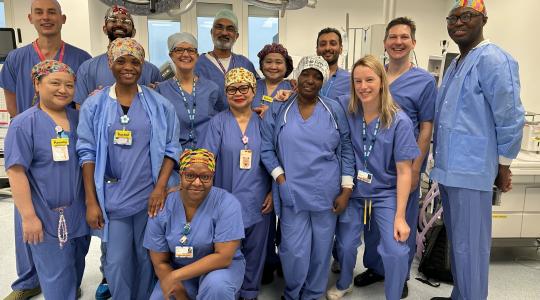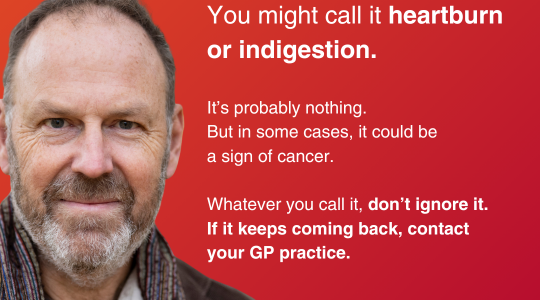World Neuroendocrine Cancer Day
World Neuroendocrine Cancer Day is a crucial moment for raising awareness about a lesser-known but significant health concern. Neuroendocrine Cancer (NET) is a complex and often misunderstood condition that affects a particular type of cells in the body's neuroendocrine system. Understanding and recognising the symptoms of NET is crucial for early diagnosis and effective management.
What is Neuroendocrine Cancer?
Neuroendocrine Cancer is a rare type of cancer that originates in the neuroendocrine cells, which are found throughout the body. These cells have characteristics of both nerve cells and hormone-producing cells, allowing them to release hormones into the bloodstream. NETs can develop in various organs, including the gastrointestinal tract, lungs, pancreas, and other less common sites.
Unlike some other forms of cancer, neuroendocrine tumours can be indolent (slow-growing) or aggressive, making the prognosis and treatment strategies unique to each case. Due to their diverse locations and behaviours, NETs often present a diagnostic challenge, requiring a multidisciplinary approach for effective management.
Recognising Symptoms
The symptoms of Neuroendocrine Cancer can be subtle and mimic other common conditions, leading to delayed diagnosis. It's essential for individuals to be aware of potential signs, prompting timely medical attention. Common symptoms include:
- Flushing: Persistent and unexplained redness or warmth of the face, neck, or upper chest.
- Diarrhea: Frequent and prolonged diarrhea that may be accompanied by abdominal pain.
- Abdominal Pain: Discomfort or pain in the abdomen, often mistaken for digestive issues.
- Unexplained Weight Loss: Significant and unintended weight loss without changes in diet or exercise.
- Coughing and Breathlessness: Symptoms that may indicate lung involvement in NETs.
- Changes in Bowel Habits: Altered bowel movements, constipation, or blood in the stool.
It is crucial to note that these symptoms can vary depending on the location and aggressiveness of the tumour. If individuals experience persistent or worsening symptoms, seeking medical advice promptly is essential.
Getting Help: Seeking Diagnosis and Treatment
Consulting a General Practitioner (GP): The first step for anyone experiencing concerning symptoms is to schedule an appointment with their GP. GPs are the primary point of contact for healthcare in England and can conduct initial assessments, order tests, and refer patients to specialists if necessary.
Specialist Referral: Given the complexity of Neuroendocrine Cancer, a referral to a specialist, such as an oncologist or gastroenterologist, may be required for a more in-depth evaluation. These specialists have the expertise to conduct specific tests, such as imaging studies and blood tests, to confirm or rule out the presence of NETs.
Diagnostic Tests: Common diagnostic tools for Neuroendocrine Cancer include imaging studies like CT scans and MRI scans.
Biopsy: In some cases, a biopsy may be necessary to definitively diagnose NETs. This involves extracting a small sample of tissue from the suspected tumour for laboratory analysis.
Treatment Options: The management of Neuroendocrine Cancer varies based on factors such as tumour type, location, and stage. Treatment options may include surgery, chemotherapy, and targeted therapies. A personalised treatment plan will be developed in consultation with the patient's medical team.
Support and Awareness
Living with Neuroendocrine Cancer can be challenging, both physically and emotionally. Support groups, such as those facilitated by the NET Patient Foundation in the UK, can provide valuable resources and a sense of community for individuals and their families facing this diagnosis.
Conclusion
On World Neuroendocrine Cancer Day, it is vital for people across England to understand the nature of Neuroendocrine Cancer, recognise potential symptoms, and take proactive steps to seek medical help. Early detection and a multidisciplinary approach to treatment are crucial for improving outcomes and enhancing the quality of life for those living with Neuroendocrine Cancer. By fostering awareness and encouraging open dialogue, we can collectively work towards better understanding, diagnosis, and management of this rare but impactful condition.
Find out more: https://www.neuroendocrinecancer.org.uk/





